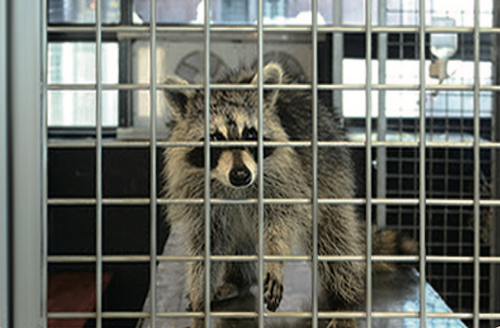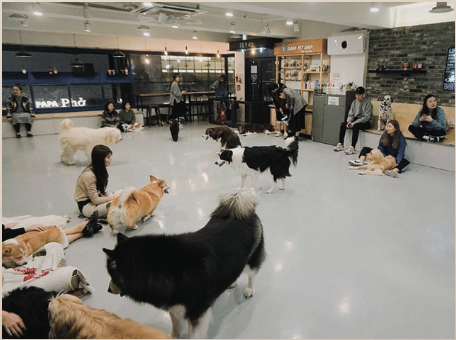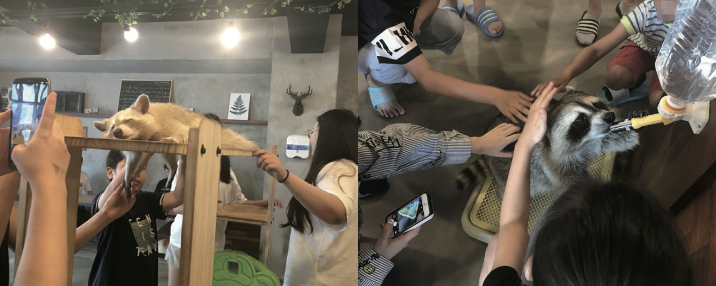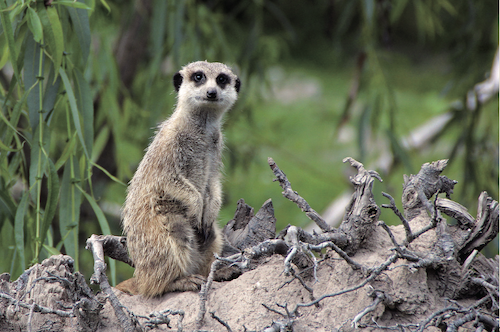
Animal cafés have become exceptionally popular among adolescents and young adults. People are seemingly attracted by the fact that for a reasonable price of 6,000 won to 10,000 won, one can enjoy a drink while interacting with cute and interesting animals. What people fail to realize, however, is that the animal industry is hiding a dark side. Through this article, the Sungkyun Times (SKT) aims to discuss the problems associated with wild animal cafes and provide possible solutions to help alleviate these plights.
Animals in Entertainment
The Emergence of Wild Animal Cafés
For the past few years, there has been a steady increase in the number of families and individuals taking an interest in household pets. According to a survey conducted by the Animal and Plant Quarantine Agency (APQA) in 2018, 23.7% of all households in Korea currently have at least one pet in their homes. Fueled by the influx of people taking an interest in animals, the animal industry — already a large- scale industry — was able to expand its market further. The industry reports the scale of production to have doubled within a single year, from 1.7 trillion won in 2015 to 2.29 trillion won in 2016. This gave the sector more than enough confidence for a new type of business to set sail: animal cafes. Initially from Taiwan, animal cafes began as coffee shops where people could bring their pets along and slowly transitioned into spaces where dogs and cats would be raised for human- animal socialization. As animal cafes gained more and more popularity, business owners began expanding their selection to rabbits, guinea pigs, and soon, wild animals were a favored choice, due to the distinctiveness they provide to the scene.

Current Status of Wild Animal Cafés in Korea
In the year 2019, Animal Welfare Awareness, Research and Education (AWARE) released a list of all wild animal cafes operating within the country. The report was based on several sources: previous findings of their own, official documents from the Ministry of Environment (ME), and establishments that were open to disclosing their information on the internet. Their findings revealed that the total number of wild animal cafes in Korea increased from 35 in 2017 to 64 in 2019. While Seoul was reported to host the biggest percentage, many other areas such as Chungcheong, Jeju Island, and South Gyeongnam have seen an increase in the number of active business operations. Unfortunately, it is almost impossible to track down and calculate the exact number of animal cafes that are being run around the country because many owners of small-scale animal cafes continue to take advantage of the legal system’s ambiguity and register their businesses as either restaurants or normal cafes.
Animal Animosity
Stressful Living Situations
1. Inappropriate Environmental Conditions
Every animal species is accustomed to a particular habitat; there is a specific level of humidity, atmospheric temperature, and type of ecosystem that each creature on earth is acclimatized to. While it is understood that these physiological needs must be met for these animals to thrive, in highly confined spaces such as animal cafes, it becomes very difficult to provide these environmental requirements. In effect, the wellbeing of these restricted animals suffers. The most representative example of this phenomenon would be the poor conditions in which meerkats and wallabies are left to live. By nature, both meerkats and wallabies are designed to dwell on soil, as the friction and grip it provides help these animals to move more comfortably and keep their nails well-trimmed. These animals have been observed, however, awkwardly walking across slippery cafe flooring, with very long nails that are
not regularly tended to. Excessively lengthy nails may end up being detrimental as it could cause infections and painful tearing to animals’ skin.
2. Uncomfortable Proximity
Animals in animal cafes are not only constantly exposed to nerve-wracking visual and auditory stimuli but are in a position where they are highly susceptible to tactile stressors. The fact that they are placed in a cramped room is more than enough to cause significant distress. Introducing the unfamiliar element of unprompted physical touch does nothing but aggravate the fears and stress that these animals feel, which, in most cases, leads to abnormal behavior. Raccoons, typically known for their high levels of adaptability, are often seen in cafes propped up against a wall, standing with their two hind legs and repeatedly scratching its surface while jumping up and down. Biologists conclude that this is a product of extreme anxiety, as raccoons instinctively try to find elevated spots to hide themselves, especially when under immense stress. In addition, the proximity between animals that should not be cohabiting, especially those that are in predator-prey relationships — raccoons and cats, for instance — also stimulate high levels of tension, especially to the ones that are naturally preyed on. Unwanted contact amongst different species as well as human beings can bring adverse effects to animals’ mental health, and this may be particularly harmful to wild animals as they have not been domesticated.

Ecological Disturbances
There are currently no legalities regarding animals that have managed to escape nor laws that dictate the steps that must be taken when deciding to shut down an animal cafe, and this can, in turn, bring disturbances to the earth’s ecosystem. Allowing foreign breeds of animals to freely roam around within the country’s wildlife may lead to unpredictable biological and ecological consequences. While there is a relatively high possibility that these animals are not capable of surviving in a new and unfamiliar ecosystem, there is an equally significant prospect that these animals will adapt to the foreign environment and begin to cause harm to local flora and fauna. An appropriate exemplar would be Japan’s on-going raccoon infestation. In the 1970s, some raccoons that were imported to be sold as household pets were let go of to make a home for themselves in the wild, and soon, they began to reproduce. This marked the calamitous beginning of a 40-year-old ecological problem. The country’s agricultural sector was — and still is — suffering, and even ancient temples have been affected by these raccoons’ sharp claws and abundant feces.
A Future to Look Forward to
Right to Proper Environment
Current Korean laws regarding animal facilities only revolve around zoos and aquariums. Even then, they do not explicitly state the elements that business owners must focus on when providing for the animals under their care. Discussion about the detriments this industry brings to our society must ensue, and changes must be brought to the legislation as soon as possible, especially with the intention of preserving animal rights. The range of laws concerning animals and the quality of their habitation must be widened to encompass all facilities that host animals, and the next focus should be on specifying the very vague contents of the law. New York City poses as a great model as their law suggests that any individual that wishes to make a profit from animals must first receive permission from the New York City Department of Health and Mental Hygiene (NYC DOHMH) regardless of the species or number of animals that they wish to use. It is
also specified that the animals must be placed in spaces that are well-ventilated and void of human contact as much as possible. Following these steps would ensure that all animal cafes either maximize the comfort levels of their animals or completely refrain from exploiting animals as a means of profit.

Restraint of Animal Trade
Another effective way of keeping an eye out for animals would be to prevent the purchasing of foreign animal species. While Korea’s legal system does, to some extent, closely guard the trading of fauna, it is only applicable to species that are endangered. This means that any animal that is not on the endangered species list is caught right at the blind spot of legislation. Countries, including Belgium and the Netherlands, have currently adopted “positive lists” of animals that are allowed to be purchased and raised in one’s home. If anyone wishes to purchase an exotic animal that is not on this list, they are either forbidden to do so or are required to go through an elaborate screening process. Having Korea endorse a similar type of list would significantly reduce the number of foreign animals sent into the wild and minimize the possibility of bringing disturbance to the country’s ecology, ultimately decreasing the negative effects caused by wild animal cafes.
The immorality and iniquity laced world of animal cafes show consumers that this is an industry that should not be supported nor encouraged. The SKT believes that the media must not sugarcoat the severity of this problem and rightfully educate the public about animal rights. To nip the problem in the bud, government officials, legal professionals, and scientists alike should partake in this movement to protect animals and search for ways to minimize the harmful effects caused by wild animal cafes.
